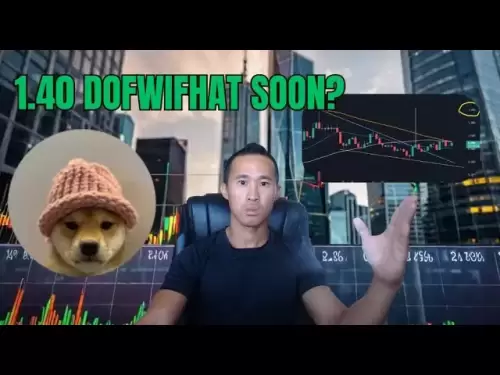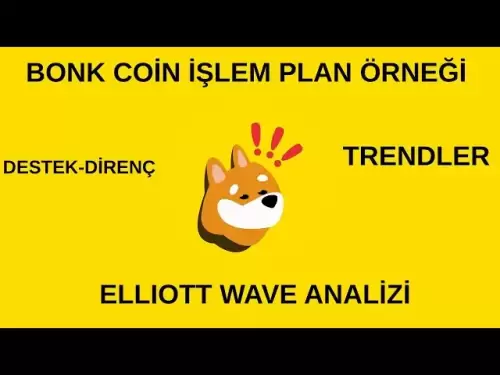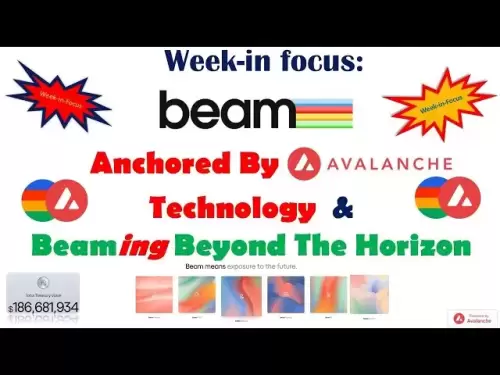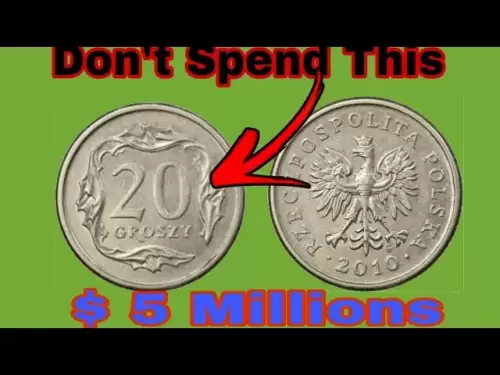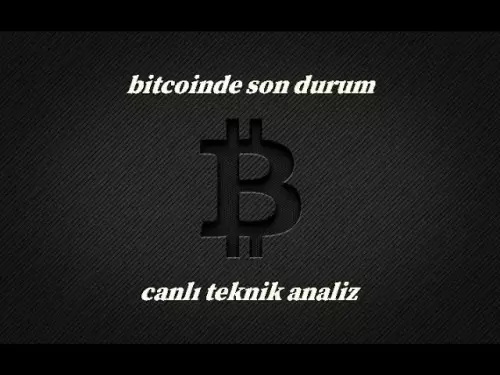-
 Bitcoin
Bitcoin $108,562.4295
0.46% -
 Ethereum
Ethereum $2,533.9553
1.52% -
 Tether USDt
Tether USDt $1.0002
-0.01% -
 XRP
XRP $2.2542
2.23% -
 BNB
BNB $662.4567
1.48% -
 Solana
Solana $151.4114
3.48% -
 USDC
USDC $0.9999
0.00% -
 TRON
TRON $0.2860
0.91% -
 Dogecoin
Dogecoin $0.1685
3.72% -
 Cardano
Cardano $0.5809
1.63% -
 Hyperliquid
Hyperliquid $39.2916
1.85% -
 Sui
Sui $2.8874
0.85% -
 Bitcoin Cash
Bitcoin Cash $496.5801
2.72% -
 Chainlink
Chainlink $13.3582
2.48% -
 UNUS SED LEO
UNUS SED LEO $9.0279
0.07% -
 Avalanche
Avalanche $18.0773
2.30% -
 Stellar
Stellar $0.2426
3.05% -
 Toncoin
Toncoin $2.9086
6.01% -
 Shiba Inu
Shiba Inu $0.0...01170
2.97% -
 Hedera
Hedera $0.1587
3.47% -
 Litecoin
Litecoin $87.4596
1.13% -
 Monero
Monero $317.0425
0.73% -
 Polkadot
Polkadot $3.3778
1.90% -
 Dai
Dai $0.9999
-0.01% -
 Ethena USDe
Ethena USDe $1.0001
-0.01% -
 Bitget Token
Bitget Token $4.4095
0.63% -
 Uniswap
Uniswap $7.3593
6.80% -
 Pepe
Pepe $0.0...09910
3.64% -
 Aave
Aave $274.7388
2.68% -
 Pi
Pi $0.4607
0.48%
Why hasn't my Bitstamp deposit arrived yet?
Your Bitstamp deposit may be delayed due to network congestion, low transaction fees, pending confirmations, or Bitstamp's internal processing; check the status using the TXID on a blockchain explorer.
Apr 26, 2025 at 08:56 am
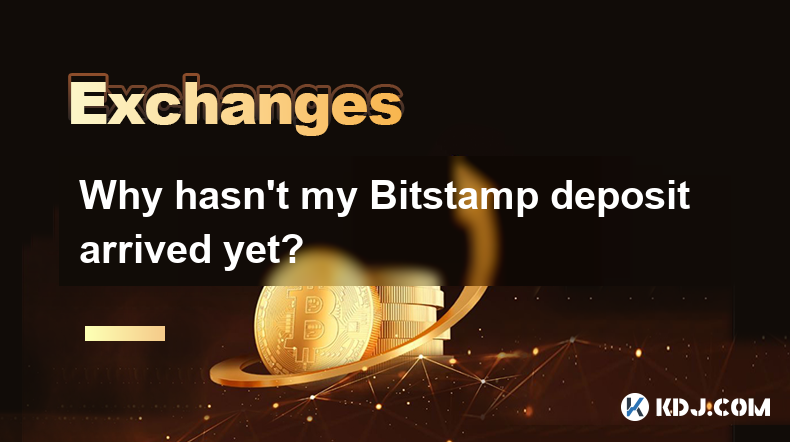
Why hasn't my Bitstamp deposit arrived yet?
When you send a deposit to Bitstamp, you expect it to arrive promptly. However, there are several reasons why your deposit might be delayed. Understanding these reasons can help you troubleshoot the issue and take the necessary steps to resolve it.
Common Reasons for Delayed Deposits
Delayed deposits can occur due to various factors within the cryptocurrency ecosystem. Here are some of the most common reasons:
- Network Congestion: The blockchain network you are using to send your cryptocurrency might be experiencing high traffic, which can slow down transaction processing times.
- Transaction Fees: If you set a low transaction fee, your transaction might be processed slower as miners prioritize transactions with higher fees.
- Pending Confirmation: Cryptocurrency transactions require a certain number of confirmations on the blockchain before they are considered complete. Depending on the network, this can take varying amounts of time.
- Bitstamp's Internal Processing: Bitstamp has its own internal processes for verifying and processing incoming deposits, which can add to the overall time it takes for your funds to become available.
How to Check the Status of Your Deposit
If you're concerned about the status of your deposit, you can take several steps to check its progress:
- Transaction ID: Locate the transaction ID (TXID) provided by your wallet when you sent the deposit. This unique identifier can help you track the transaction on the blockchain.
- Blockchain Explorer: Use a blockchain explorer specific to the cryptocurrency you sent (e.g., Bitcoin Blockchain Explorer for BTC) and enter the TXID to see the current status of your transaction.
- Bitstamp's Deposit History: Log into your Bitstamp account and navigate to the deposit history section. Here, you can see if Bitstamp has received and is processing your deposit.
Understanding Network Congestion
Network congestion is a frequent cause of delayed cryptocurrency transactions. When the blockchain network is overwhelmed with a high volume of transactions, it can lead to slower processing times. Here's how it works:
- High Demand: During times of high demand, such as when there's a surge in cryptocurrency trading or when new features are added to the network, more transactions are submitted than the network can handle efficiently.
- Block Size and Frequency: Each blockchain has a maximum block size and a frequency at which new blocks are added to the chain. If the number of transactions exceeds the capacity of a block, they must wait for subsequent blocks.
- Priority of Transactions: Miners typically prioritize transactions with higher fees, which means transactions with lower fees might be processed more slowly during congested periods.
The Role of Transaction Fees
Transaction fees play a crucial role in determining how quickly your deposit is processed. Here's why:
- Incentive for Miners: Miners are responsible for verifying and adding transactions to the blockchain. They prioritize transactions that offer higher fees because it increases their revenue.
- Setting the Right Fee: When you send a deposit, you can set the transaction fee. A higher fee can incentivize miners to process your transaction faster, especially during times of network congestion.
- Dynamic Fee Adjustment: Some wallets and exchanges offer dynamic fee adjustment, which automatically sets the fee based on current network conditions to ensure faster processing.
Bitstamp's Internal Processing Time
Bitstamp's internal processing can also contribute to the delay in your deposit arriving. Here's what happens after your transaction is confirmed on the blockchain:
- Verification: Bitstamp verifies the transaction details, including the sender's address and the amount received, to ensure it matches the deposit request.
- Security Checks: Additional security checks are performed to prevent fraudulent activities, which can add time to the processing.
- Credit to Account: Once all checks are passed, the funds are credited to your Bitstamp account, making them available for trading or withdrawal.
Steps to Take if Your Deposit is Still Delayed
If your deposit is taking longer than expected, here are some steps you can follow:
- Contact Bitstamp Support: Reach out to Bitstamp's customer support with your transaction details. They can provide more insight into the status of your deposit and any potential issues.
- Double-Check Transaction Details: Ensure that you entered the correct deposit address and that the transaction was sent to the correct network (e.g., sending BTC to a BTC address, not a BCH address).
- Monitor the Blockchain: Continue to monitor the blockchain explorer to see if the transaction is still pending or if it has been confirmed but not yet processed by Bitstamp.
- Check for Network Updates: Look for any recent updates or news about the blockchain network you used, as these can sometimes affect transaction processing times.
Frequently Asked Questions
Q: Can I cancel a delayed deposit on Bitstamp?
A: Once a cryptocurrency transaction is sent, it cannot be canceled. If your deposit is delayed, you need to wait for it to be processed or contact Bitstamp support for assistance.
Q: How long should I wait before contacting Bitstamp about a delayed deposit?
A: It's generally recommended to wait at least 24 hours after sending a deposit before contacting Bitstamp support, as this allows time for the transaction to be processed and for Bitstamp to complete their internal checks.
Q: Will Bitstamp charge me a fee if my deposit is delayed?
A: Bitstamp does not charge additional fees for delayed deposits. However, you may have paid a transaction fee when sending the cryptocurrency, which is not refundable.
Q: Can I speed up a delayed deposit on Bitstamp?
A: You cannot directly speed up a deposit once it has been sent. However, setting a higher transaction fee when sending the deposit can help it be processed faster by miners. If the delay is due to Bitstamp's internal processing, you'll need to wait or contact support for assistance.
Disclaimer:info@kdj.com
The information provided is not trading advice. kdj.com does not assume any responsibility for any investments made based on the information provided in this article. Cryptocurrencies are highly volatile and it is highly recommended that you invest with caution after thorough research!
If you believe that the content used on this website infringes your copyright, please contact us immediately (info@kdj.com) and we will delete it promptly.
- BNB, Binance, and CZ: What's the Buzz?
- 2025-07-07 06:50:12
- Hedera Hashgraph: ETF Buzz and Bullish Charts – HBAR to the Moon?
- 2025-07-07 06:30:12
- BlockDAG, Pi Network, and SUI Stable: Navigating the Crypto Landscape in '25
- 2025-07-07 07:10:13
- SYRUP Token's Sweet Ascent: TVL Surges and DeFi Growth on Maple Finance
- 2025-07-07 07:15:13
- Bitcoin, Listed Companies, and ETFs: A New York Minute on Crypto Trends
- 2025-07-07 06:30:12
- Stablecoins, Redot Pay, and Korea: A Glimpse into the Future of Payments
- 2025-07-07 07:20:14
Related knowledge
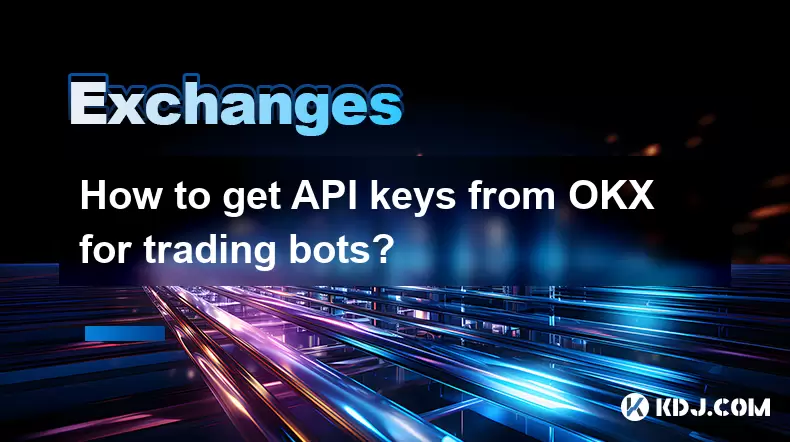
How to get API keys from OKX for trading bots?
Jul 03,2025 at 07:07am
Understanding API Keys on OKXTo interact with the OKX exchange programmatically, especially for building or running trading bots, you need to obtain an API key. An API (Application Programming Interface) key acts as a secure token that allows your bot to communicate with the exchange's servers. On OKX, these keys come with customizable permissions such ...
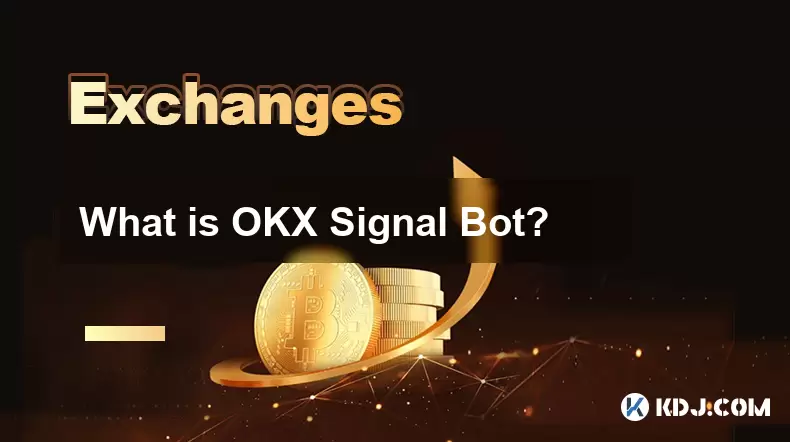
What is OKX Signal Bot?
Jul 02,2025 at 11:01pm
Understanding the Basics of OKX Signal BotThe OKX Signal Bot is a feature within the OKX ecosystem that provides users with automated trading signals and execution capabilities. Designed for both novice and experienced traders, this bot helps identify potential trading opportunities by analyzing market trends, technical indicators, and historical data. ...
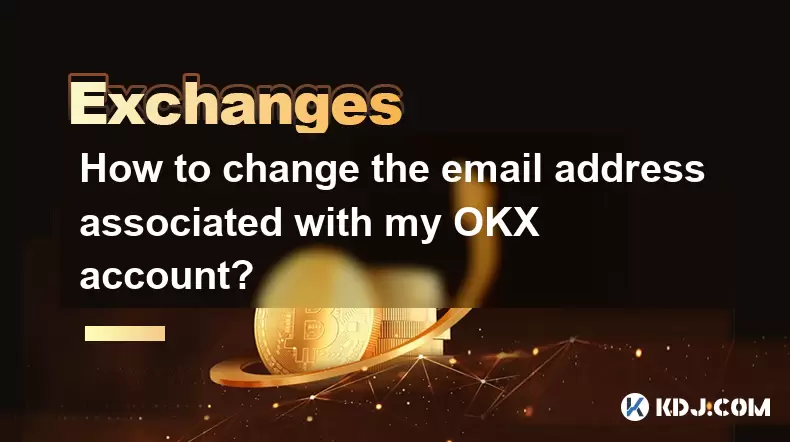
How to change the email address associated with my OKX account?
Jul 07,2025 at 08:07am
How to Change the Email Address Associated with My OKX Account?Changing the email address associated with your OKX account is a crucial process that ensures you maintain control over your digital assets and account security. Many users may find themselves needing to update their registered email due to various personal or technical reasons, such as swit...
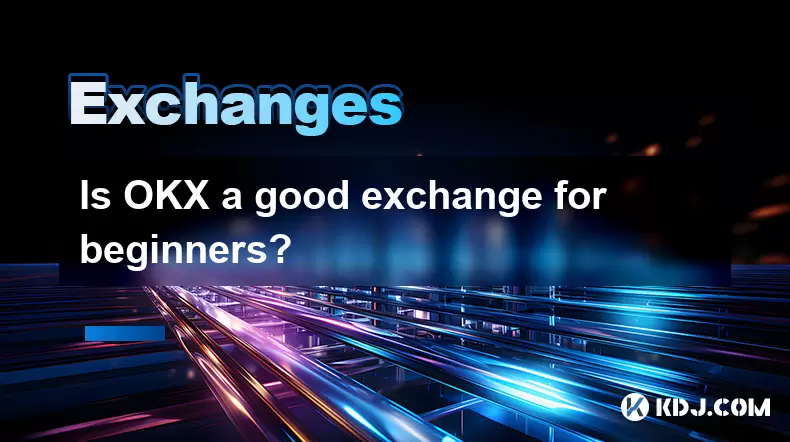
Is OKX a good exchange for beginners?
Jul 03,2025 at 05:00pm
What Is OKX and Why Is It Popular?OKX is one of the leading cryptocurrency exchanges globally, known for its robust trading infrastructure and a wide variety of digital assets available for trading. It supports over 300 cryptocurrencies, including major ones like Bitcoin (BTC), Ethereum (ETH), and Solana (SOL). The platform has gained popularity not onl...
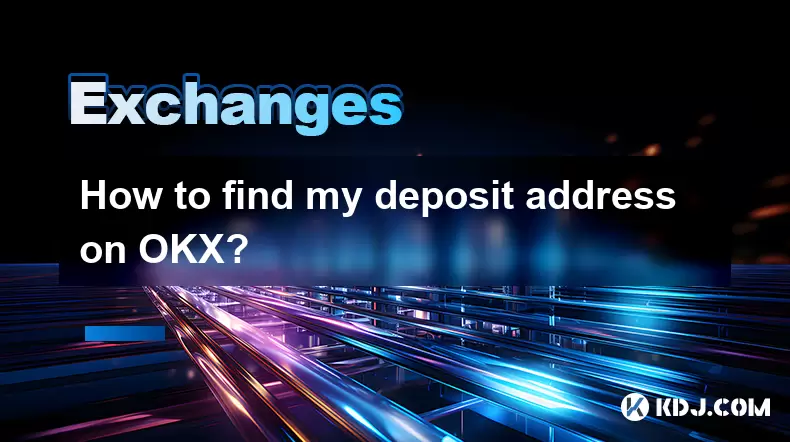
How to find my deposit address on OKX?
Jul 06,2025 at 02:28am
What is a Deposit Address on OKX?A deposit address on OKX is a unique alphanumeric identifier that allows users to receive cryptocurrencies into their OKX wallet. Each cryptocurrency has its own distinct deposit address, and using the correct one is crucial to ensure funds are received properly. If you're looking to transfer digital assets from another ...
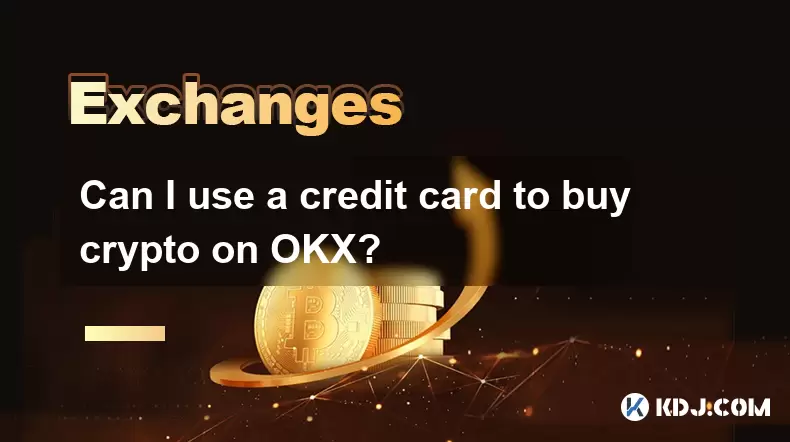
Can I use a credit card to buy crypto on OKX?
Jul 04,2025 at 04:28am
Understanding OKX and Credit Card PaymentsOKX is one of the leading cryptocurrency exchanges globally, offering a wide range of services including spot trading, derivatives, staking, and more. Users often wonder whether they can use a credit card to buy crypto on OKX, especially if they are new to the platform or looking for quick ways to enter the mark...

How to get API keys from OKX for trading bots?
Jul 03,2025 at 07:07am
Understanding API Keys on OKXTo interact with the OKX exchange programmatically, especially for building or running trading bots, you need to obtain an API key. An API (Application Programming Interface) key acts as a secure token that allows your bot to communicate with the exchange's servers. On OKX, these keys come with customizable permissions such ...

What is OKX Signal Bot?
Jul 02,2025 at 11:01pm
Understanding the Basics of OKX Signal BotThe OKX Signal Bot is a feature within the OKX ecosystem that provides users with automated trading signals and execution capabilities. Designed for both novice and experienced traders, this bot helps identify potential trading opportunities by analyzing market trends, technical indicators, and historical data. ...

How to change the email address associated with my OKX account?
Jul 07,2025 at 08:07am
How to Change the Email Address Associated with My OKX Account?Changing the email address associated with your OKX account is a crucial process that ensures you maintain control over your digital assets and account security. Many users may find themselves needing to update their registered email due to various personal or technical reasons, such as swit...

Is OKX a good exchange for beginners?
Jul 03,2025 at 05:00pm
What Is OKX and Why Is It Popular?OKX is one of the leading cryptocurrency exchanges globally, known for its robust trading infrastructure and a wide variety of digital assets available for trading. It supports over 300 cryptocurrencies, including major ones like Bitcoin (BTC), Ethereum (ETH), and Solana (SOL). The platform has gained popularity not onl...

How to find my deposit address on OKX?
Jul 06,2025 at 02:28am
What is a Deposit Address on OKX?A deposit address on OKX is a unique alphanumeric identifier that allows users to receive cryptocurrencies into their OKX wallet. Each cryptocurrency has its own distinct deposit address, and using the correct one is crucial to ensure funds are received properly. If you're looking to transfer digital assets from another ...

Can I use a credit card to buy crypto on OKX?
Jul 04,2025 at 04:28am
Understanding OKX and Credit Card PaymentsOKX is one of the leading cryptocurrency exchanges globally, offering a wide range of services including spot trading, derivatives, staking, and more. Users often wonder whether they can use a credit card to buy crypto on OKX, especially if they are new to the platform or looking for quick ways to enter the mark...
See all articles





















